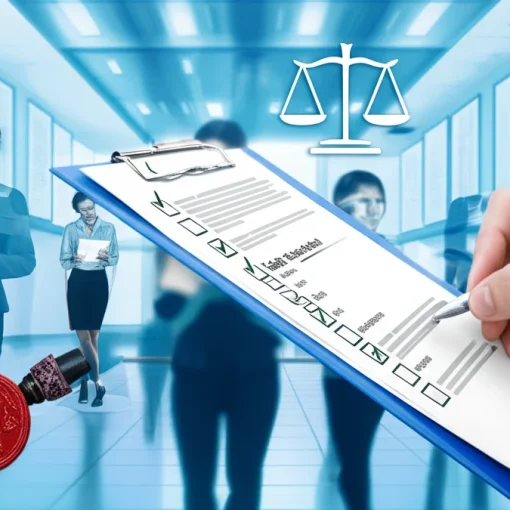Ever found yourself staring out the window, maybe at the stubborn Wisconsin snow or just a cloudy sky over Lake Michigan, and thought, Am I really doing everything right when it comes to my team? You’re trying to build something great, hire good people, keep them happy, but sometimes the sheer weight of regulations can feel like navigating an ice storm without a de-icer. Believe me – you’re not alone in feeling that way. Understanding the basics of Wisconsin’s labor laws isn’t just about ticking boxes; it’s fundamental to protecting your company, treating your employees fairly, and frankly, sleeping better at night. We’re gonna dive into a few key areas – things like what you must pay, when overtime kicks in, making sure you’re treating everyone equally, and what that whole at-will thing actually means here in the Badger State. Let’s peel back some layers together.
The Bare Minimum: Wages and Pay
Alright, let’s start with the money part, because that’s usually front and center.
Minimum Wage in Wisconsin
Seems straightforward, right? Pay your people at least the minimum wage. And for a long time now, Wisconsin’s minimum wage has pretty much mirrored the federal rate. As of my last check, that rate is $7.25 per hour for most employees.
Now, while that number feels set in stone right now, my experience tells me you still need to keep an eye on it. State laws can change, federal laws can change, and sometimes municipalities even have their own rates (though that’s less common in Wisconsin than some other states). Don’t just set it and forget it. A quick check on the Wisconsin Department of Workforce Development (DWD) website periodically is smart practice.
What about tipped employees? This is where folks sometimes get a bit tangled. In Wisconsin, employers can pay a lower direct wage to employees who earn tips, but only if that lower wage plus the tips they actually earn adds up to at least the standard minimum wage for all hours worked. If it doesn’t, the employer has to make up the difference. My advice? Keep clear records of tips and do that math regularly. It’s easy to get off track, and that’s a simple way to land in hot water.
Working Overtime: When the Clock Keeps Ticking
Okay, overtime. Ah, overtime. This is probably where I see the most confusion, honestly. The basic rule is simple: if an employee works more than 40 hours in a workweek, you generally owe them time and a half their regular rate of pay for those hours over 40. That’s federal law, and Wisconsin follows suit.
Who Gets Overtime Pay?
Here’s the tricky bit – who is entitled to overtime? Not everyone. The law has these things called exemptions. The most common ones are for certain executive, administrative, and professional employees. We often call them salaried exempt employees, but just paying someone a salary doesn’t automatically make them exempt from overtime. That’s a huge mistake I’ve seen businesses make.
To be truly exempt, an employee usually has to meet three tests:
- Salary Basis Test: They have to be paid a predetermined, fixed salary that doesn’t change based on the number of hours worked.
- Salary Level Test: That salary has to meet a certain minimum threshold set by federal law. This threshold has changed over the years and is subject to change again! You have to keep up with this number. Paying a salary below this level means they are not exempt, no matter their job duties.
- Duties Test: This is the big one. Their primary job duties must involve certain types of work, like managing others, exercising independent judgment on significant matters, or performing advanced professional work.
Frankly, figuring out if someone truly meets the duties test can be complicated. Just because someone has a fancy title doesn’t mean they qualify. They might be called Manager, but if they spend 90% of their time doing the same tasks as the hourly staff, they might not be exempt.
My practical tip: If you’re unsure about an employee’s classification, err on the side of caution and treat them as non-exempt (eligible for overtime). Or, better yet, consult with an HR professional or employment lawyer. Misclassifying employees is one of the most common and costly errors businesses make. Back pay for years of unpaid overtime can really add up.
Treating Everyone Fairly: Anti-Discrimination Laws
This one is fundamentally about fairness, and frankly, it’s just good business. Wisconsin, like the federal government, has strong laws preventing discrimination in employment.
Protected Characteristics in Wisconsin
Federal law prohibits discrimination based on race, color, religion, sex (including sexual orientation and gender identity), national origin, age (40+), and disability. Wisconsin law is often broader! It adds protections based on things like:
- Sexual orientation
- Marital status
- Ancestry
- Arrest record (with some specific exceptions)
- Conviction record (again, with specific exceptions related to the job)
- Military service
This means you can’t make decisions about hiring, firing, promotions, pay, benefits, or any other terms and conditions of employment based on these characteristics. And harassment based on these characteristics is also a form of discrimination.
Here’s the takeaway: Don’t just rely on gut feelings or assumptions about people based on protected traits. Focus on qualifications, performance, and behavior. Have clear, objective criteria for hiring and performance evaluations. Document everything, especially performance issues. If you have to terminate someone, make sure the real reason is related to their job performance or business needs, and not based on a protected characteristic. A solid paper trail is your friend here. I’ve seen countless times where a lack of documentation makes it incredibly hard to defend a legitimate employment decision.
The At-Will Thing: What It Really Means
Okay, let’s talk about at-will employment. Most employment in Wisconsin is considered at-will. What that means is that generally, either the employer or the employee can end the employment relationship at any time, for any reason, or no reason at all. Sounds pretty powerful for the employer, right?
But here’s the critical caveat, and it’s a massive one: you cannot terminate an employee for an illegal reason.
Exceptions to At-Will Employment
The illegal reasons basically boil down to:
- Discrimination: You can’t fire someone because of their race, age, sex, etc., as we just discussed.
- Retaliation: You can’t fire someone because they complained about discrimination or harassment, filed a wage claim, reported safety violations, or engaged in other legally protected activities (like taking FMLA leave, reporting fraud, etc.). This is a huge area of litigation.
- Public Policy Exceptions: You can’t fire someone for refusing to break the law, performing a civic duty (like jury duty), or exercising a legal right.
- Employment Contracts: If you have a formal employment contract that specifies a term of employment or conditions for termination, that contract overrides the at-will presumption. (These are usually for executives or specialized roles, not standard employees).
- Implied Contracts: Be careful here. Sometimes, statements in employee handbooks, verbal promises (You’ll have a job here as long as the company is in business), or consistent past practices can inadvertently create an implied contract that limits your ability to terminate someone at-will.
So, the practical advice: While you can fire someone at-will, in the real world, it’s often best to have a legitimate, non-discriminatory, non-retaliatory business reason, especially if the employee has been there a while or falls into a protected class. And for goodness sake, be careful what you put in your employee handbook! Avoid language that sounds like a guarantee of continued employment or promises specific disciplinary steps before termination (unless you plan to always follow them rigidly). I always recommend having an at-will disclaimer in your handbook, signed by the employee, to make the relationship clear.
Wrapping It Up: Stay Informed and Get Help
Look, I know this is a lot to take in. Running a firm is hard enough without feeling like you need a law degree. The key takeaway from all of this, in my opinion, is two-fold:
- Stay Informed: Labor laws aren’t static. They change. Minimum wage thresholds, overtime rules, interpretations of discrimination – it’s all dynamic. Make it a point to check reliable sources like the DWD website or reputable HR news sites periodically.
- Don’t Be Afraid to Ask for Help: You don’t have to be the expert on everything. That’s why HR consultants and employment lawyers exist. Getting solid advice before you make a hiring decision, classify an employee, or handle a termination can save you mountains of stress and potentially huge amounts of money down the road. Think of it as an investment in protecting your organization.
Getting these things right isn’t just about avoiding penalties; it’s about building a solid, ethical foundation for your business and creating a workplace where people feel valued and treated fairly. And honestly, that’s the kind of business most of us want to run anyway, right? Now, go grab that coffee refill. You’ve earned it.




